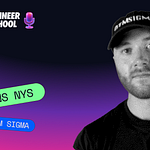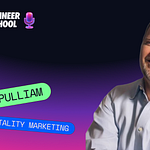I sat down with Jared Brickman to find out what he’s been learning from having helped half of the 550 Insight Partners portcos implement AI to drive more growth and efficiency
Here are 10 key lessons learned.
1. Buying Tools Isn’t a Strategy
Too many leaders assume that buying ChatGPT or Copilot and handing it to their teams will yield breakthrough performance. It won’t. Brickman emphasized that real results require systemic workflows tied to core KPIs—not just generalized tool access.
"We’re well past the prompt-sharing stage. You need coordinated systems to move the needle."
2. From Prompts to Playbooks to Deep Interventions
Insight’s journey evolved from prompt training in 2023, to replicable "recipes" in 2024, and now to hands-on deployments. The difference-maker? Structured use cases that tackle specific business problems.
Case studies became playbooks. Playbooks became MVPs. That’s the flywheel that creates repeatable success.
3. How Insight Engages with PortCos
Insight works in two ways:
Structured design: Mapping processes, finding bottlenecks, and building from there.
Solution-led prototyping: Bringing working templates and helping companies deploy fast.
One LA-based portfolio company built a working AI-powered campaign system in a single-day hackathon—Ops upstairs, marketing downstairs, launching side-by-side.
4. A Simple GTM AI Prioritization Framework
Brickman’s 4-part approach:
Automate inbound lead response.
Engage high-intent outbound signals.
Scale campaign capacity.
Support the deal team with co-pilots and admin tools.
Post-sale? Apply the same lens, with a bonus focus on Tier 1 customer support.
5. Real Examples of Real Results
6sense: Moved from 50% to 100% SLA compliance by deploying conversational bots when reps didn’t respond in time—generating 20% of pipeline.
Cybersecurity firm: 10x’ed campaign output with a self-serve campaign builder.
E-commerce platform: 100x’ed first-page keyword rankings by auto-generating long-tail SEO content from support docs.
6. Don’t Default to New Tools
If you’re locked into an existing stack, don’t jump ship. Brickman recommends mapping pain points and evaluating if your current tools (like Zapier or Make) can handle it—especially with the new LLM-based extensions.
7. Build vs. Buy Varies Widely
Larger companies often build in-house using Snowflake or AWS. But some early-stage companies skip hiring altogether and start with AI agents. Brickman sees success in both paths.
8. Structure and Coordination Matter More Than Titles
An AI committee or center of excellence is essential at scale. One cautionary tale: a PortCo built their own Clay-like tool—without realizing the CMO had already bought Clay.
9. The Power of the Portfolio
Insight fosters cross-company collaboration through its Onsite Expert Hour series, cohort training, and shared libraries of prompts and Zaps. It’s a living lab of what’s working.
10. The Rise of the AI Org Chart
Brickman sees a future where employees direct—not operate—AI agents. Multi-agent architectures are already mimicking org charts. Humans are stepping up into strategic roles while agents handle coordination and execution.
"Think of it as managing an intern—one that can scale."
Final Thoughts
The takeaway? Don’t chase the shiniest tools. Start with business problems, build systems around them, and scale what works. As Brickman puts it, "It’s not hype anymore. It’s traction."
Want more sessions like this? Learn more at GTM Engineer School.
Watch the full interview here at our Youtube channel:











